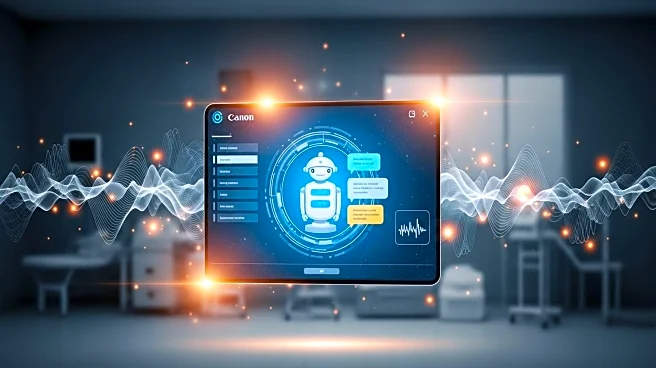What's Happening?
Allen Frances, MD, has provided insights into the role of AI chatbots in the field of psychiatry. He emphasizes the potential for these technologies to assist clinicians in their practice. AI chatbots are increasingly being integrated into healthcare settings, offering new ways to interact with patients and manage mental health care. Frances highlights the importance of understanding how these tools can be used effectively, ensuring that they complement rather than replace human interaction in clinical settings. The discussion revolves around the balance between technological advancement and maintaining the personal touch that is crucial in psychiatric care.
Why It's Important?
The integration of AI chatbots in psychiatry represents a significant shift in how mental health services can be delivered. These technologies offer the potential to increase accessibility to mental health care, providing support to patients who may not have easy access to traditional services. For clinicians, AI chatbots can serve as valuable tools for managing patient interactions and streamlining certain aspects of care. However, there is a need to ensure that these tools are used ethically and effectively, preserving the quality of care and the human connection that is essential in mental health treatment. The broader impact includes potential changes in how mental health services are structured and delivered across the U.S.
What's Next?
As AI chatbots continue to evolve, clinicians and healthcare providers will need to adapt to these changes. This includes ongoing education and training to understand the capabilities and limitations of AI technologies in clinical settings. There may be developments in regulatory frameworks to ensure the ethical use of AI in healthcare. Stakeholders, including healthcare institutions and policymakers, will likely engage in discussions about best practices and guidelines for integrating AI chatbots into mental health care. The future may see increased collaboration between technology developers and healthcare professionals to optimize these tools for patient benefit.
Beyond the Headlines
The use of AI chatbots in psychiatry raises important ethical considerations, particularly regarding patient privacy and data security. As these technologies become more prevalent, there will be a need to address concerns about the potential for AI to make decisions that traditionally require human judgment. Additionally, the cultural shift towards accepting AI in healthcare may influence public perceptions of mental health treatment, potentially reducing stigma and encouraging more individuals to seek help. Long-term, the integration of AI could lead to innovative approaches in mental health care, reshaping the landscape of psychiatric services.










